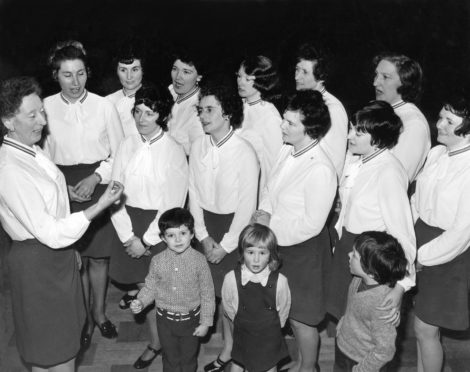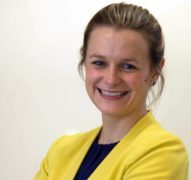She was a tiny woman with pure white hair cut into a bob and eyes that seemed as wide as those of a Disney character.
I’ll call her Brenda.
Although I only knew her for a short time – almost 20 years ago – I can picture her to this day.
She was a resident at the elderly people’s home where I worked as a care assistant during my university holidays.
As a languages student, I was immediately drawn to her after discovering she had been fluent in several.
Sadly, however, she had forgotten them all.
In fact – worse still – she didn’t even remember she had known them in the first place.
Because Brenda had advanced dementia.
I’d like to think she was a lovely lady and looking back, her manner suggested she was. She was always smiling and keen to please.
Of course, I’ll never know who the real Brenda was, what she was like before her symptoms stole her identity.
Regardless – meeting her had a profound impact on me.
Initially, it made me question the point of pursuing any learning if it’s all potentially going to be so cruelly snatched away later on.
And then I realised that the best lesson to take was instead the importance of making the most of life while I’m healthy.
The experience also prepared me for my own grandmother Netta’s long, drawn-out demise at the hands of dementia.
Having watched her own father suffer with Alzheimer’s, she repeatedly told me how much she dreaded such an end.
Unfortunately – brutally – she wasn’t spared one, such is life.
This might sound melodramatic, but the only way I can describe it is to say that dementia stripped away her soul bit by bit, leaving behind a mere shell, a casing that bore little resemblance to the person we once knew.
That she had to live like this for some six years felt so unfair on her and was hard on us all, particularly the stage when gram knew what was happening yet could do nothing about it.
These two women popped into my head this week while reading about a warning from Alzheimer’s Research UK describing dementia – an umbrella term covering a set of symptoms that affect cognitive function – as the greatest health challenge of our time.
There are no doubt numerous conditions in the running for such a title and I don’t think it’s necessarily helpful to hierarchise in this way.
But the statistics certainly make for frightening reading.
According to the World Health Organization, deaths from dementia more than doubled between 2000 and 2016, making it the fifth biggest killer globally.
Around 50 million people are currently living with it, with cases expected to rise to 150 million by 2050.
Or, put more frankly, a new case of dementia is diagnosed every three seconds.
Moreover, while some treatments help people cope with their symptoms – which can include confusion, memory loss, communication problems and personality change – there are none to stop the diseases, like Alzheimer’s and vascular dementia, that cause them.
As a result, the syndrome will continue to rise in prevalence as people live longer, although we should remember that dementia isn’t confined to the elderly, nor is it an inevitable part of getting older – a common misconception according to a study earlier this year.
When it came to my gram, we did our best to do the one thing we knew how.
With her memory gone and her ability to communicate severely hampered, reminiscing became difficult, virtually impossible.
Nor could she live beyond the moment she was in.
So we tried to make the present as fulfilling and meaningful as possible.
One way of doing this, as actress Vicky McClure’s documentary Our Dementia Choir has powerfully shown, is through music.
It always used to amaze me that – despite no longer knowing where she was or who any of us were – my gram was able to recall detailed song lyrics and tunes, and to sing them with gusto.
Her decades with the Aberdeen Opera Company may have helped, but the same seems to be true more generally too.
I remember how much the care home residents enjoyed the singing activities, which always lifted the mood and in some cases helped maintain speech.
This focus on improving the lives of those living with dementia is obviously crucial.
We are where we are.
But, if there is to be any hope of winning the fight against it longer-term, we also need to drive forward research.
Because ultimately, fundamentally, the goal has to be finding a cure.
It goes without saying that an increase in funding for this work – currently significantly lower than investment in cancer research – would have a huge impact.
As well as money, however, dementia research needs volunteers to take part in studies aimed at finding new ways to prevent it.
And critically, alongside this, it is important to keep raising awareness.
Awareness about dementia itself, for instance, key risk factors, such as heavy drinking, smoking, genetics, high blood pressure and depression.
But also awareness of, and in turn hopefully compassion for, what people are going through.
On that note, I’m reminded of an explanation given to me during my training.
As it has stuck with me for so long, I think it’s worth finishing with it now.
“It’s one thing to forget where you put your glasses… it’s quite another to forget you wear them.”
Lindsay Razaq is a journalist and former P&J Westminster political correspondent who now combines freelance writing with being a first-time mum

